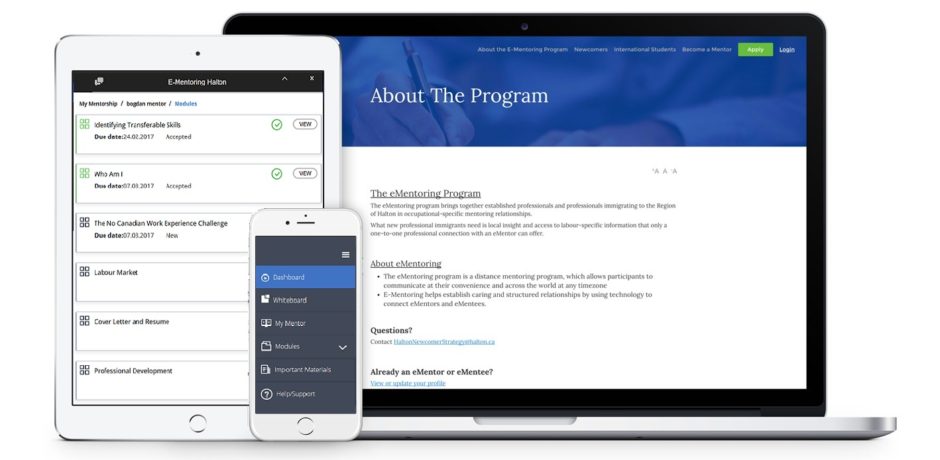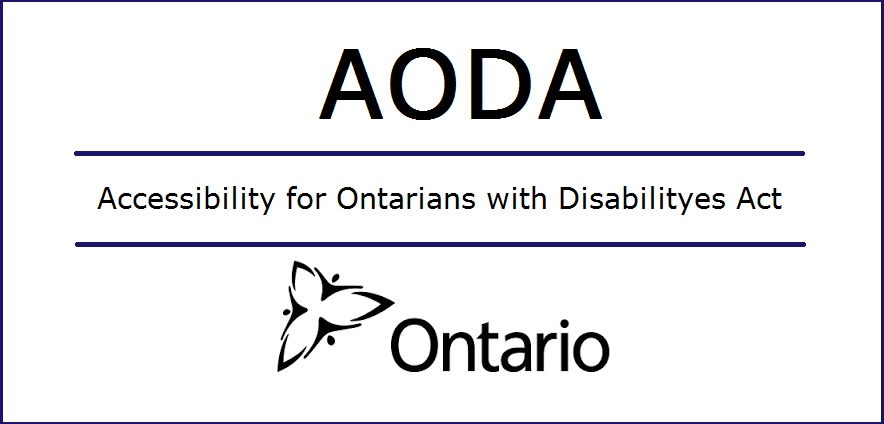ontario
E-Mentoring Halton Online Collaboration Platform Launched
The VerticalWave Solutions team is proud to announce the launch of E-Mentoring Halton, a new generation type of collaboration platform, dedicated to provide online mentoring partnerships for residents of Halton Region. It is a complex program, designed to bridge the gap between established professionals and professionals immigrating to the Region of Halton in occupational-specific mentoring relationships. Moreover, the platform is engineered to facilitate communication between program participants, across the world at any time zone.
This is a scalable system, tailored to put the most efficient collaboration, communication and sharing tools at the fingertips of e-Mentors and e-Mentees. The challenge was to merge all functionality features with an intuitive and easy to use design for the end-user and for system administrators.
Using the powerful Drupal CMS, our team successfully implemented a wide variety of functional features and a modern responsive design, combining state of the art mobile and desktop UI and UX into an interactive and secure specialty platform.
E-Mentoring Halton boasts an innovative resource sharing system, which provides users with access to documents, videos, links and notes. Users have the possibility to communicate via comments or the integrated instant messaging system. At the same time they can schedule meetings and calls to enhance their collaboration and reach the end goal easier, while a built-in notification system alerts users and administrators of various activities via email.
System administrators can easily designate groups and associate users with them and create specific modules, tasks and evaluations for each group and user. Moreover, the content and user management system is designed to provide easy admin access to all resources and user accounts. Administrators control the back-end and entire collaboration system in a very straight-forward way to ensure the lowest interaction latency time possible.
As said, the E-Mentoring Halton platform is based on custom functionalities and employs many features, but using the latest Drupal 7 installment, combined with custom built modules, a clean and well-structured programming code and a solid database system, our team has delivered a modern, customizable and reliable solution for the client.
Implementing AODA Compliance for Web & Mobile Applications
Part of the Ontarian set of laws intended to improve accessibility for people with disabilities, the AODA – Accessibility for Ontarians with Disabilities Act adopted back in 2005 is intended to implement and enforce accessibility standards for Ontarians with disabilities with respect to everyday life aspects like goods, services, employment, accommodation, healthcare, facilities, transport and more kh0csxv.
The act eliminates what is called a barrier in terms of technology, information, communication and more for people with mental or physical disabilities. The Act is a major step forward in the history of fighting against discrimination of persons with disabilities in Ontario, therefore supported by individuals, as well as by government entities and companies alike.
The AODA sets of rules and standards concern the internet perhaps more than anything else. Ontario based websites need to comply with these regulations or are susceptible to penalties that can even escalate to lawsuits. The Act clearly specifies that government entities, public sector organizations, enterprises and related businesses must align their websites and web applications with the World Wide Web Consortium Web Content Accessibility Guidelines (WCAG) 2.0, intended to make website browsing and content access easily available to people with different levels of disabilities, from cognitive limitations to physical impairment.
AODA complaint websites will become the standard in the upcoming years, as the Act’s rules and regulations must be fully adopted and implemented by 2025, as stipulated by the law. However, implementing the necessary accessibility features requires both analysis and development to ensure correct design and functionality and a win-win outcome for visitors and users as well as for website and web apps operators and owners.
The most common implementation of the AODA compliance for web projects is based on the technical standard WCAG 2.0 levels:
- Level A (lowest), which implies a logical app/site structure, audio control, keyboard access, text alternative for non-text content, responsible use of colors, video and audio captions and more
- Level AA (intermediate), which implies live captions, audio alternative to text, text resizing options, sensitive data secured management, pre-set contrast ratio, use of clear and accessible icons, links and buttons, and more
- Level AAA (advanced), which implies translations, media alternatives, intuitive visual layout, keyboard accessibility, location and geo-location services, optimal readability level, help and instruction regarding site browsing and functionality and more
At VerticalWave Solutions we support the AODA and work close with our clients to implement intuitive and correct accessibility features across all the websites, apps and platforms we develop. This is a complex process, starting with website/app/project audit and continuing with responsible research and development to reach the end goal. Our Drupal projects integrate modern UI and UX with intuitive accessibility features. A close focus on design and functionality on both mobile and desktop platforms ensures a successful project delivery and seamless integration with the AODA rules and regulations.
Text resizing, text to speech, full featured content, accurate search, responsive and adaptive design, mobile friendly interface, quick access buttons, media integration, intuitive menus are just a few of the required accessibility features we successfully implemented for important clients like The C.D. Howe Institute, GREO – Gambling Research Exchange Ontario, YouthREX, <a href="https://verticalhq find more info.ca/portfolio_item/the-homeless-hub”>The Homeless Hub and more. All of our clients’ websites and apps are fully comply with the Accessibility for Ontarians with Disabilities Act as required for an optimal web experience.









